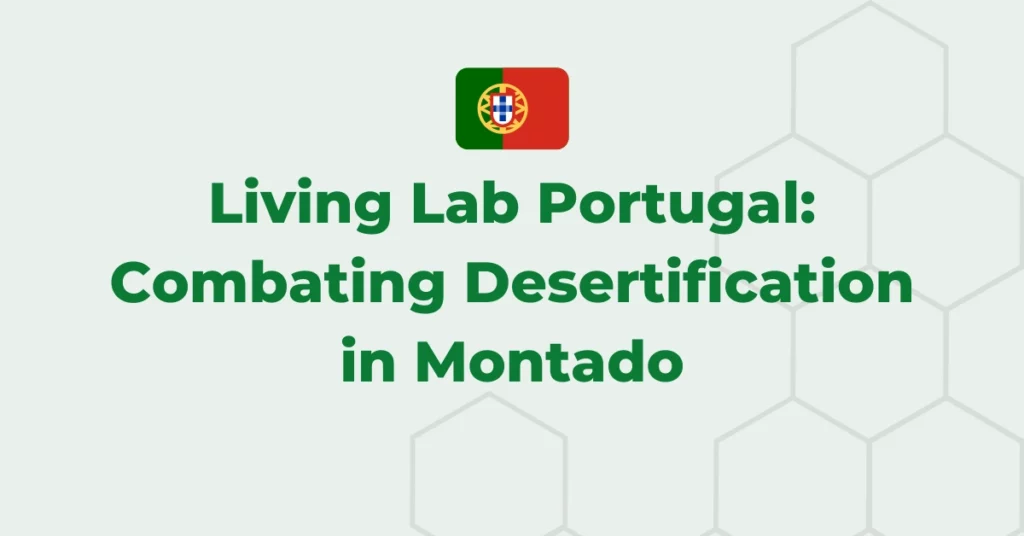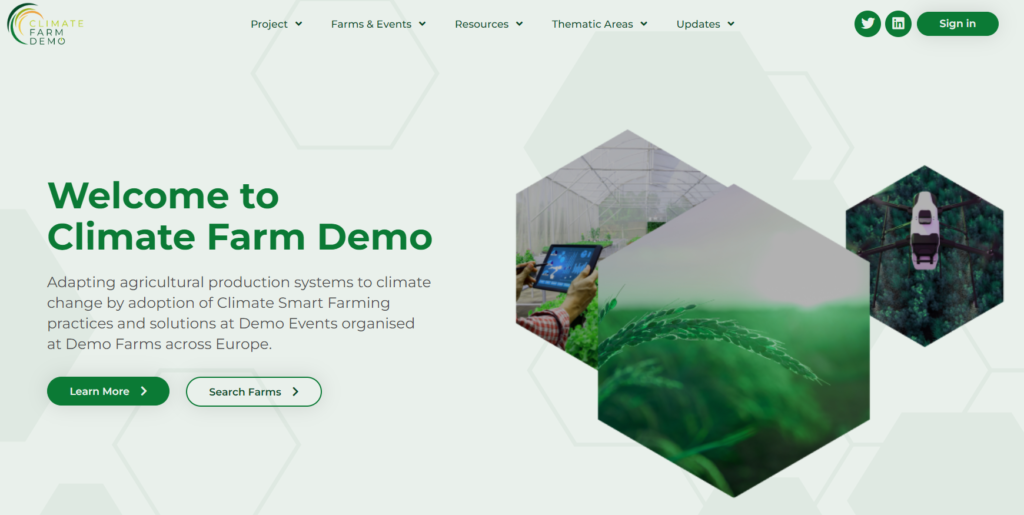In Southeast Portugal, the Montado ecosystem is under threat, with nearly 90,054 hectares disappearing in the Alentejo region between 1990 and 2006. Challenges such as poor soil, drought, biodiversity loss, and low yields have accelerated desertification in this dryland area. A lack of technical knowledge and coordination further complicates efforts to restore the landscape.
To address these issues, the Living Lab in Portugal – Montado. Fighting desertification in the South of Portugal focuses on the development, testing, and promotion of sustainable practices to enhance soil health, restore tree cover, and foster ecological and socio-economic balance in Montado. This approach ensures long-term resilience and productivity while mitigating the effects of climate change.
The Living Lab brings together six research institutes, including the University of Évora, eight associations and public entities, and four companies, including CONSULAI. Additionally, 21 farmers are actively involved with long-term experimental plots, contributing valuable on-the-ground insights to the initiative.
In this month’s spotlight, Beatriz Almeida and Maria Mendonça from CONSULAi emphasize the importance of knowledge sharing, collaboration, and innovative solutions in tackling desertification. They highlight the need for continuous monitoring and stakeholder engagement to ensure the resilience of the Montado ecosystem.
- What were your first impressions of the Living Lab, and what were your initial expectations?
The Montado Living Lab was developed to increase the value and resilience of the Portuguese mixed system Montado: an agroforestry system composed of cork oak and holm oak trees, pastures and animals such as cattle, pigs or sheep. The impact of climate change on this complex system is severe, particularly regarding soil and tree health and product quality, affecting economic viability and sustainability. While many efforts have been made along the years to answer this challenge, a multi-actor and long-term approach was needed, ensuring the alignment and commitment of different stakeholders.
Montado is a complex system, and its success depends on a series of different factors that involve constant monitorization, technical knowledge, and the perspective and active cooperation across the value chain. By establishing a strong and diverse network of stakeholders with the Montado Living Lab, we aimed at tackling these challenges in the long term.
- Do you believe the plans set forth are realistic and achievable? Why?
To guarantee a multi-actor approach, different partners connected to the Montado system were invited to be part of the Portuguese LL. The Portuguese LL is now a Quadrupole Helix network of 39 partners from 6 research institutes, 21 farmers, 8 associations and public entities, 4 companies linked to the Montado system.
The LL is coordinated by the University of Évora, which has a long and strong experience and scientific background in the development of the Montado system and coordinates several national and international soil health projects and initiatives. This provides a very solid foundation on which to build out LL.
In the beginning, a series of objectives were identified, covering the needs and interest of all AKIS members:
- research with experimentation and validation of solutions in experimental plots,
- identification, application and monitoring of sustainable practices on real and diverse farms,
- basic research for the formulation of public policies to support production systems that contribute to the sustainability of the Montado,
- improvement of the health of the Montado’s soil and regeneration of the tree cover,
- promotion of more robust and profitable business models on Montado farms.
- improving technological and innovation capacities, and entrepreneurship.
- increasing cooperation between Montado managers and other stakeholders, strengthening links with society
While the objectives established are ambitious, we expect that an aligned multi-actor network is the first step in achieving them and contributing to the resilience of this traditional Portuguese system. We believe that the need for alignment and redesign will be a slow but steady process that will need a lot of support and engagement! In any case, the initial success of the network means that partners are interested in adapting and re-shifting!
- Can you share some of your experiences and insights gained so far with LL and in this project in general?
One of the key insights we have experienced in this LL is that cross exchange between such a diverse network of partners proves to be a valuable input for complex challenges/wicked problems like adapting to the impact of climate change. Therefore, the multi-actor approach must be one of the priorities for our group, making sure everyone feels heard and involved in the process.
For example, during our first general assembly, we prepared an exercise designed to collect the inputs, needs and strengths brought by members to better align our plan. Additionally, the connection to the Climate Farm Demo project not only allows us to learn from the methodology and inputs from Work Package 4, but to exchange with both farmers at national level and project partners within Europe to further expand our knowledge.
The LL’s governance structure was designed to ensure transparency and include the perspectives and interests of all stakeholders: the LL coordination board has representatives of each stakeholder group to guarantee a multi-actor approach.
Since 2024 we have also been a proud member of the European Network of Living Labs – ENOLL, and we expect that this opportunity will allow us to further expand our learning opportunities!


